Where We Work
See our interactive map

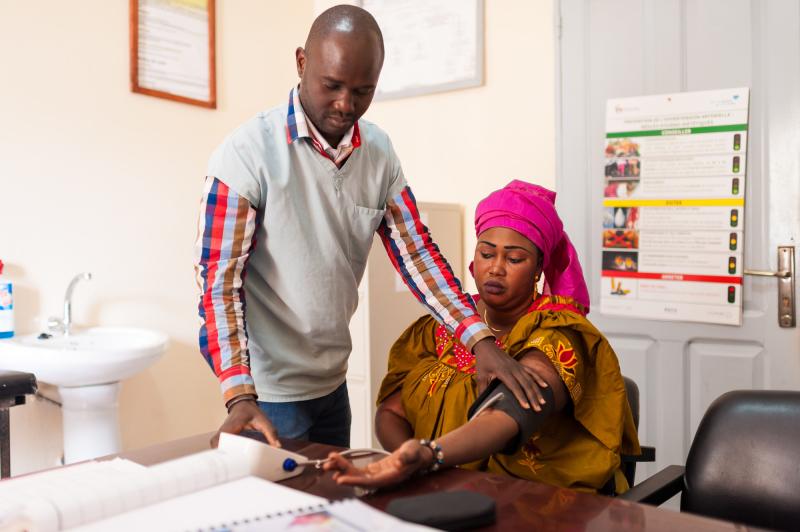
The head nurse at Yoff Ndenatte health center in Dakar, Senegal, screens a client for hypertension. Photo by Clement Tardif for IntraHealth International.
Since 2017, the government of Senegal has partnered with IntraHealth International to improve cardiovascular health in the city of Dakar. Most recently IntraHealth’s CARDIO4Dakar project (2022 – 2024), in close collaboration with the Ministry of Health and Social Action and its Division for the Control of Non-Communicable Diseases, built the capacity of health workers to improve diagnosis, management, and treatment of hypertension and other cardiovascular disease risk factors in the city’s four health districts. Funded by the Novartis Foundation and led by IntraHealth, CARDIO4Dakar also reinforced data-management systems and developed digital health tools to accelerate early detection.
In Senegal, noncommunicable diseases (NCDs) cause 45% of deaths, the majority of which are due to cardiovascular disease. Hypertension, or high blood pressure, is the main risk factor for cardiovascular disease, and early diagnosis and correct treatment can reduce acute cardiovascular events, including strokes. A 2015 STEPS survey showed 29.8% of Senegalese aged 18 to 69 had hypertension, but just 17% of people with hypertension were on treatment, and only 8% had controlled blood pressure. A 2017 situational analysis by IntraHealth showed that most providers had not received training on the management of hypertension and referred nearly all cases to cardiologists or other specialists.
CARDIO4Dakar built on the Better Hearts Better Cities program (2017 – 2021) and strengthened the knowledge and skills of providers in the management of hypertension to increase the proportion of patients under treatment and whose blood pressure is controlled. Part of the CARDIO4Cities initiative pioneered by the Novartis Foundation, CARDIO4Dakar applied the CARDIO Approach, a comprehensive strategy based on six pillars.
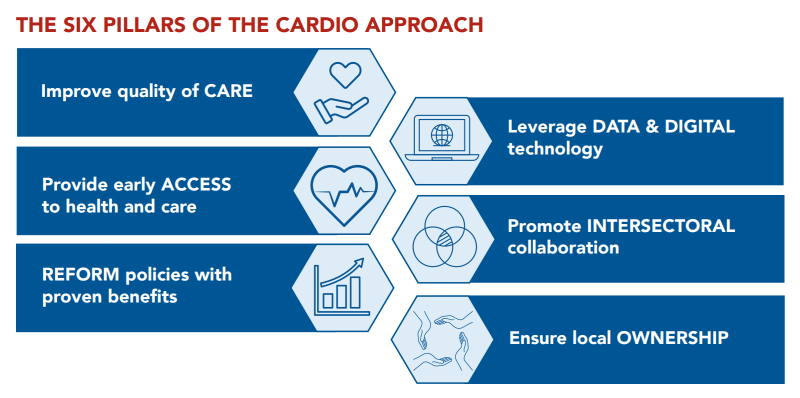
Over the last 3 years, CARDIO4Dakar:
Last week, during the last days of CARDIO4Dakar, the project officially launched the CARDIO4Dakar Toolkit to facilitate the sustainability of the CARDIO approach used in Dakar and its replication across Senegal and other African countries.
The Toolkit is intended for ministry officials at the central, regional, and district levels, as well as technical and financial partners, local authorities, representatives of professional health associations and community organizations, and others interested in implementing effective urban health strategies to address cardiovascular risk factors. It provides comprehensive guidelines on the CARDIO approach, shares the key interventions of the approach in Dakar and the roles and responsibilities of the actors, as well as the main steps of implementation, and offers tools and references needed for implementation,
As part of the scaling-up process, the Ministry of Health and Social Action, with the support of JICA and other technical and financial partners, is implementing CARDIO strategies in certain health districts and regions. Digital strategies are also being implemented in the four health districts of the Dakar department. A range of support measures have been implemented by IntraHealth, the Novartis Foundation, and the Senegalese digital startup BAAMTU Technologies and marketing agency ByFilling to help the ministry maintain these platforms.
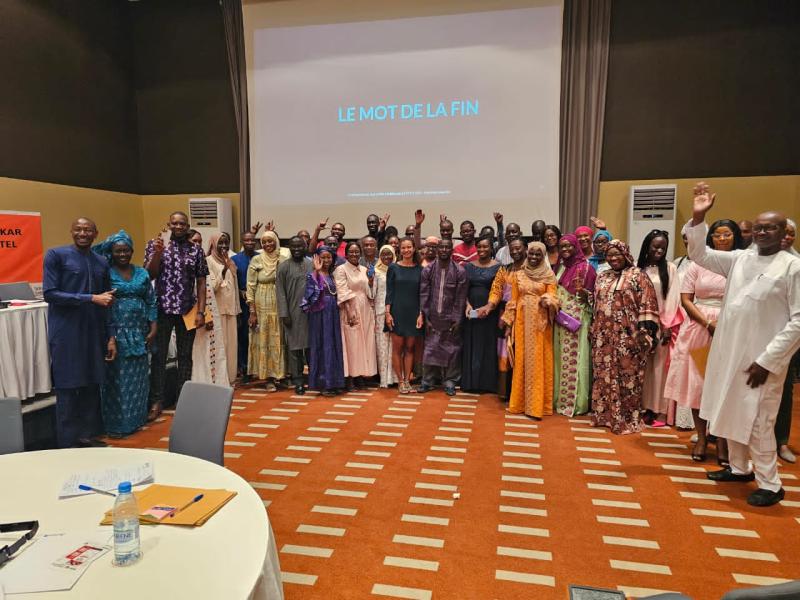
Key players in addressing NCDs in Senegal gather at the CARDIO4Dakar closing workshop, chaired by the head of the NCD Control Division at the Ministry of Health and Social Action.
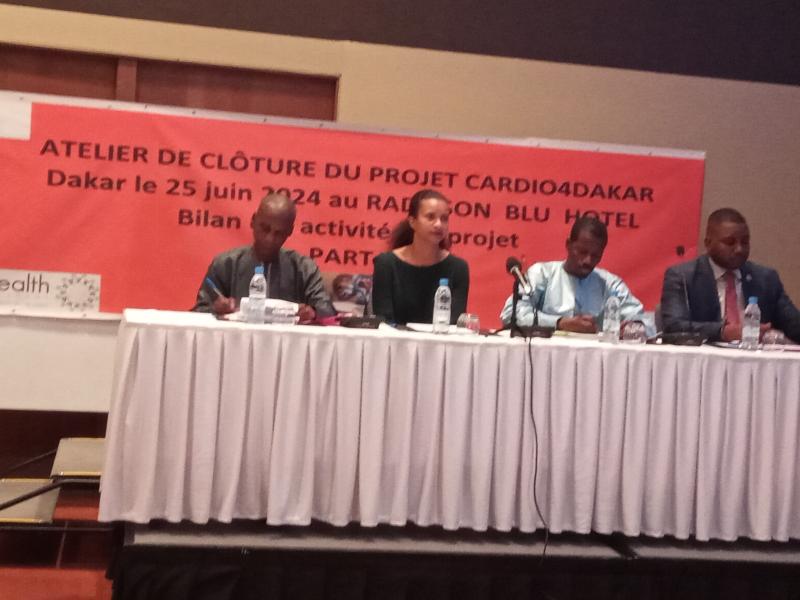
Speakers highlight CARDIO4Dakar achievements, including building health worker capacity in prevention and patient management and developing digital solutions.
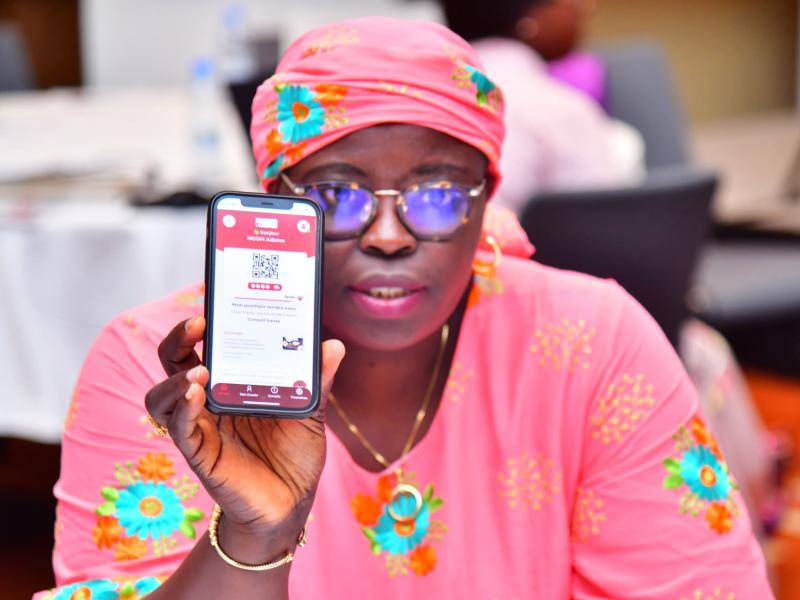
Local partners BAAMTU Technologies and ByFilling promote SAYTU TENSION to accelerate early detection, linkage to care, and follow-up for people with hypertension.
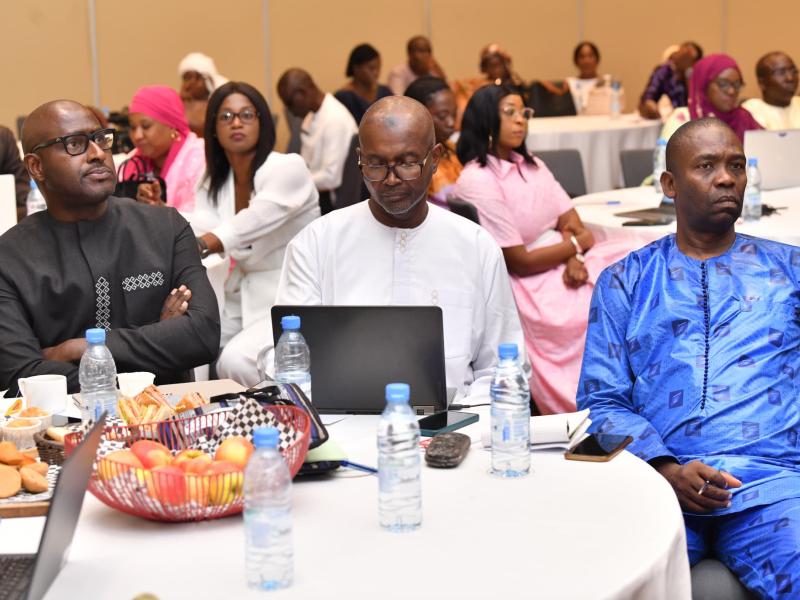
IntraHealth's Joseph Silva Barboza (left), CARDIO4Dakar director, listens to proposed sustainability strategies.
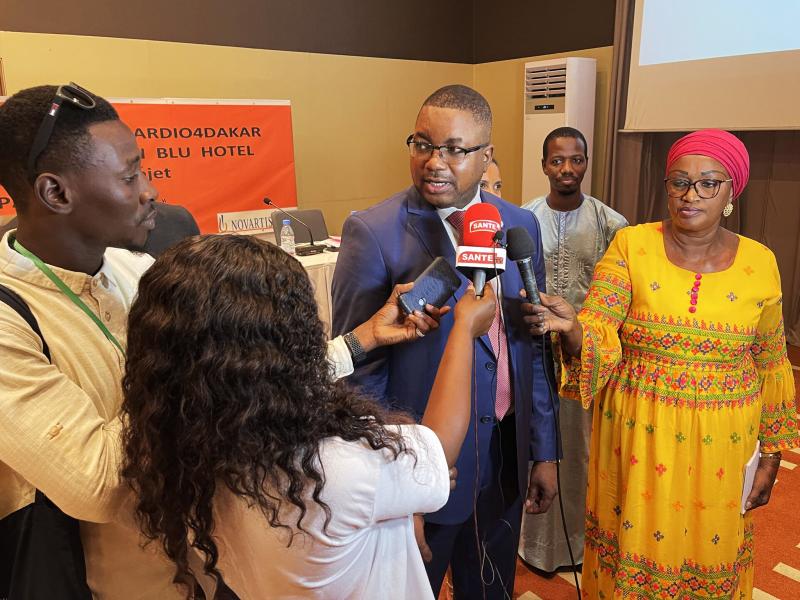
Cheich Touré, IntraHealth's Regional Director for West Africa, speaks with journalists about CARDIO4Dakar's results and local ownership by the Ministry, civil society, local authorities, and community actors.
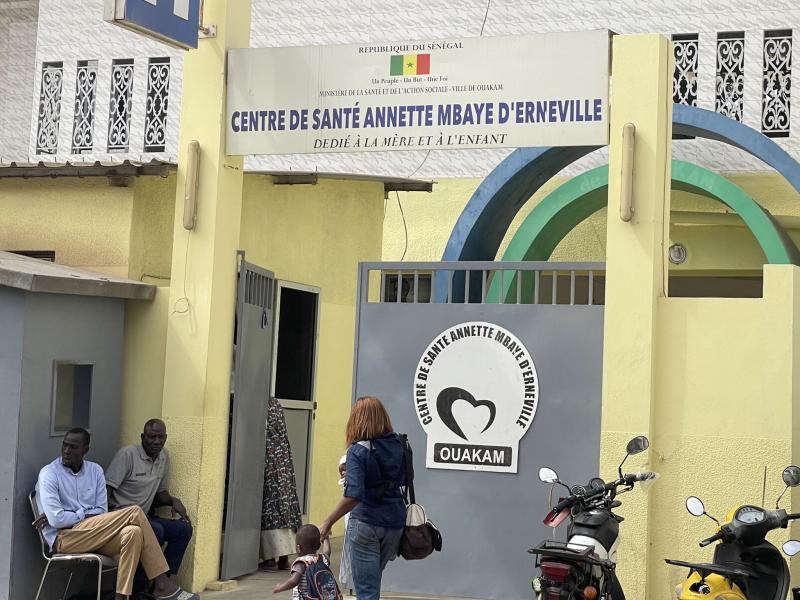
Ouakam Health Center is one of the health facilities CARDIO4Dakar partnered with. The project donated equipment to the center and trained providers on the prevention and management of hypertension, diabetes, and stroke, and the use of digital tools.
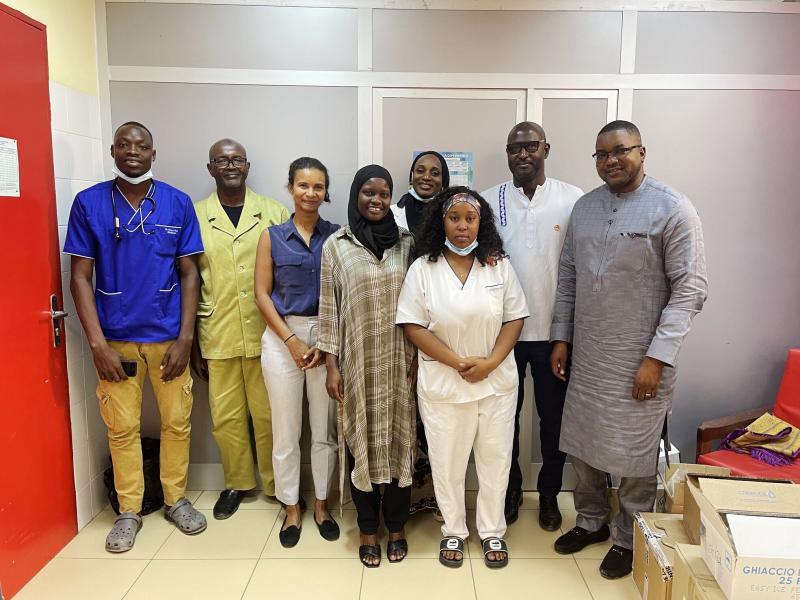
Representatives from CARDIO4Dakar, IntraHealth, and Novartis Foundation meet with health workers at Ouakam Health Center. Its implementation of CARDIO4Dakar protocols and digital tools led to better prevention, treatment, and follow-up care.
CARDIO4Dakar was led by IntraHealth International and funded by Novartis Foundation. It built on the success of the Better Hearts Better Cities program and was part of the CARDIO4Cities initiative pioneered by the Novartis Foundation. Monitoring and evaluation support was provided by the Swiss Tropical and Public Health Institute.



